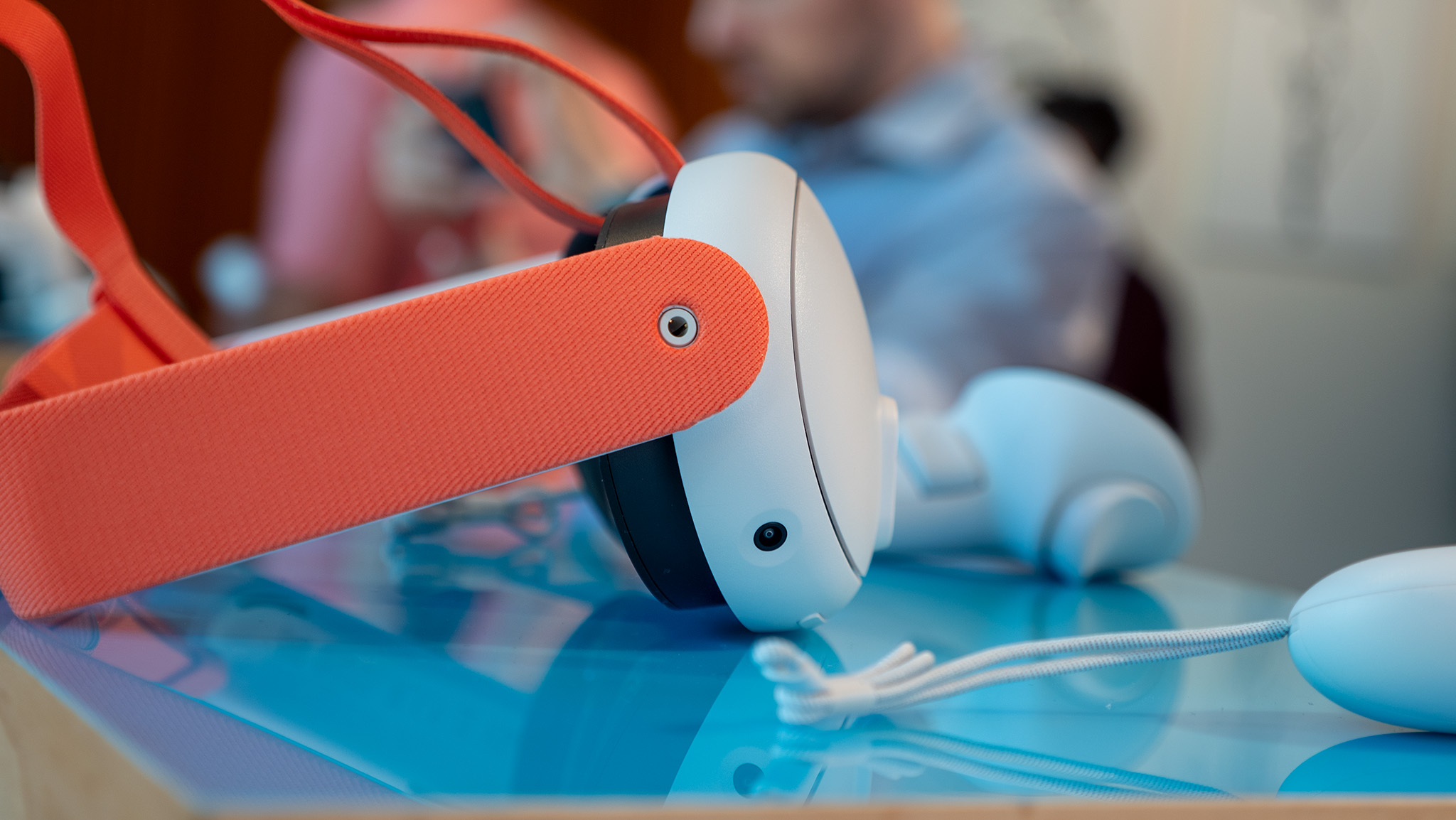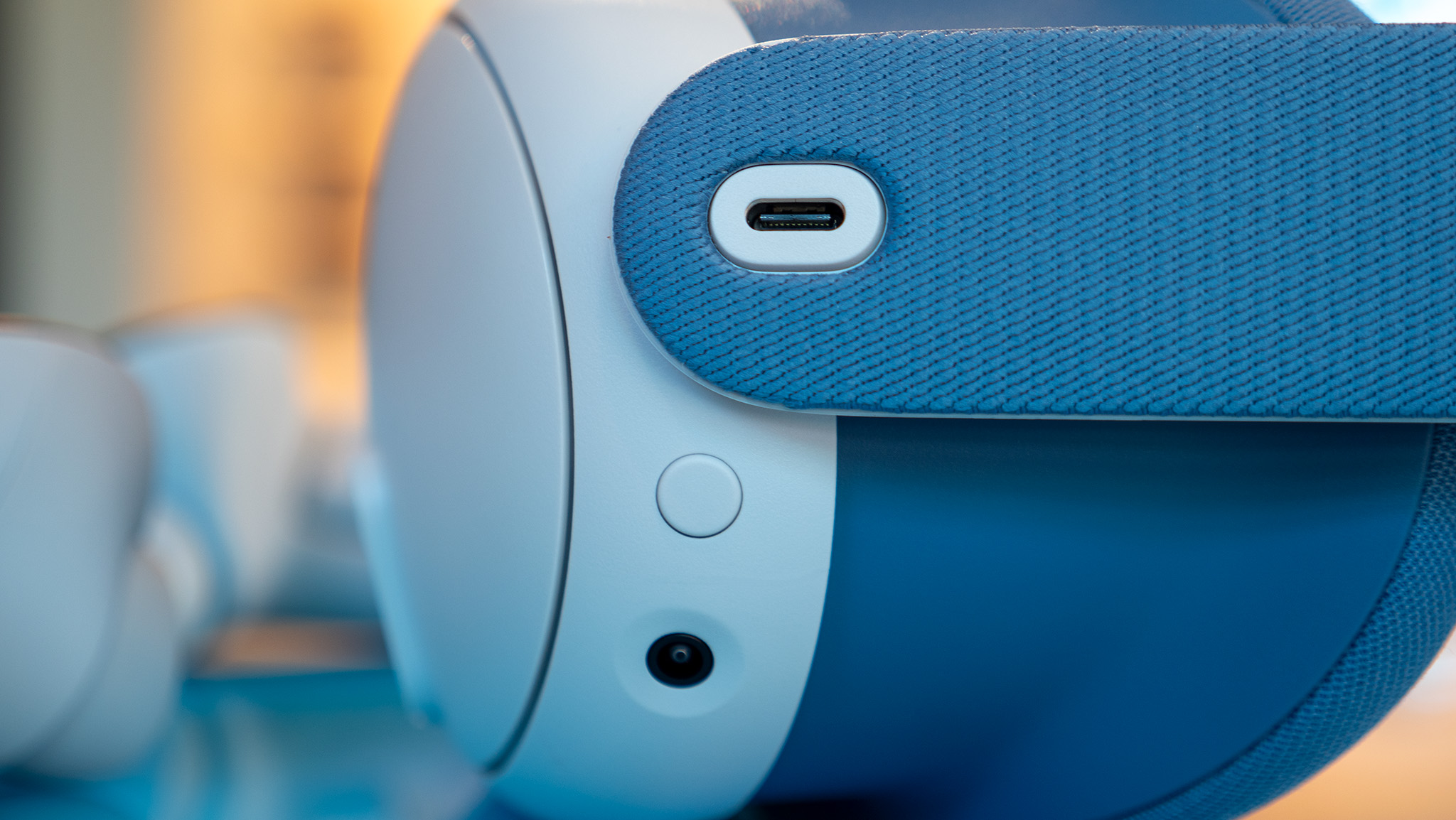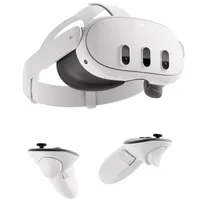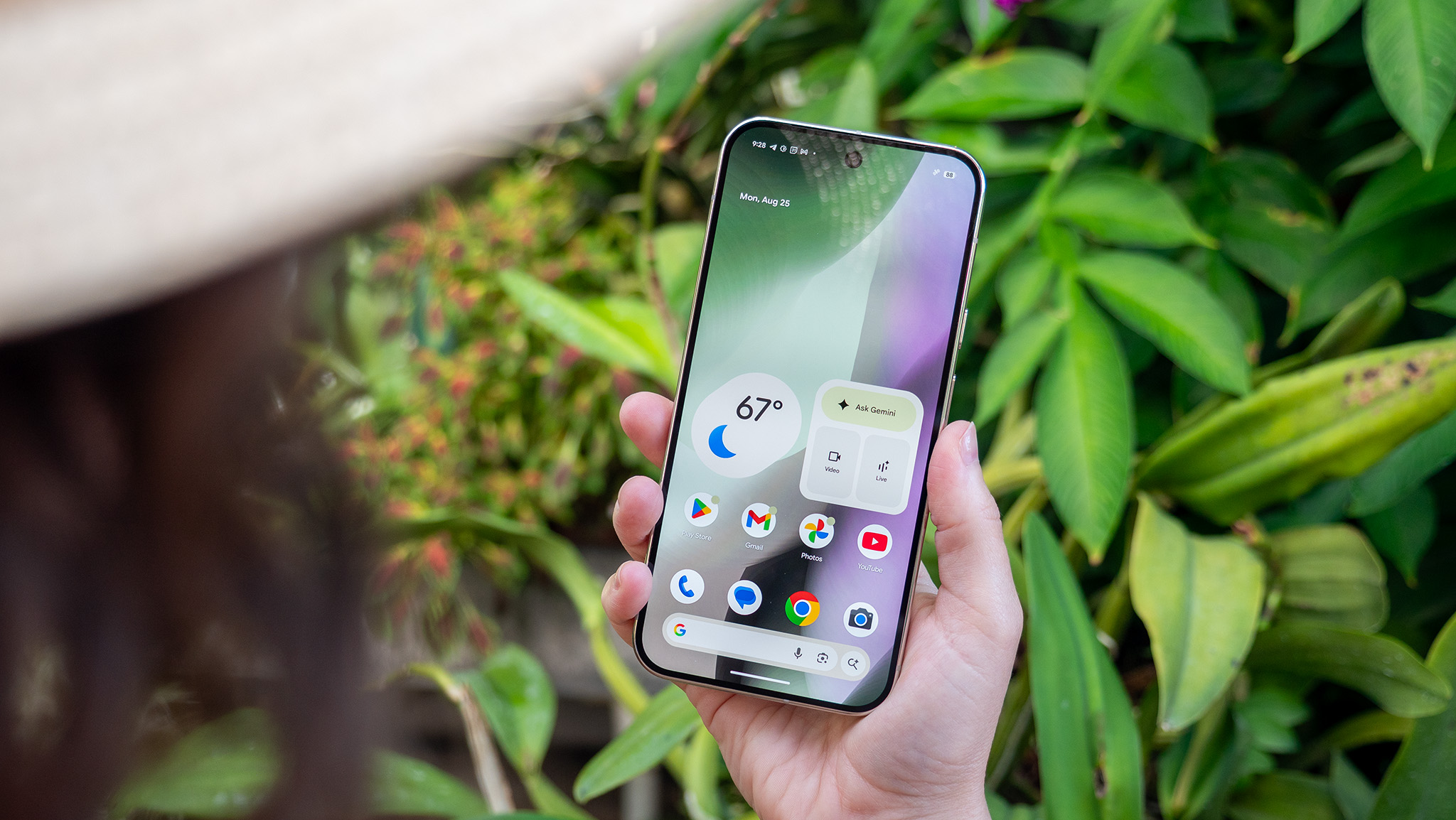Here's why the skinnier Quest 3 weighs more than the Quest 2
Meta told us that the Quest 3 "cannot be compared apples to apples with Quest 2 on weight."

What you need to know
- The Meta Quest 3 weighs 515g, or 18.2oz. The Oculus Quest 2 weighs 503g, or 17.7oz.
- The Quest 3 pancake lenses help the headset sit closer to your face but don't necessarily make it lighter.
- New Quest 3 components and upgrades like the optical distance adjuster and new cloth strap contribute to the small weight gain.
Up until the Quest 3 launch, we assumed that the MR headset's new pancake lenses, which have a 40%-slimmer optic profile than the Quest 2 lenses, would automatically make the newer headset lighter and more comfortable. It turns out we were only half-right.
The Meta Quest 3 weighs 12g more than the Oculus Quest 2. That's not a major difference, and you'll find that the Quest 3 feels more snug and fully supported out of the box. But it did prompt us to ask Meta where the extra weight comes from.
Thankfully, our Meta PR rep gave us some candid answers. She said that the two headsets "cannot be compared apples to apples with Quest 2 on weight because the devices have different components," specifically mentioning the new mixed-reality depth sensor and "optical distance adjuster."
To the first point, Meta added two new RGB cameras and the depth sensor to enable its new mixed-reality experiences. Combined with the new Snapdragon XR2 Gen 2 and extra RAM, they were bound to add some extra weight to enable enhanced Quest 3 games.
To the second point, the Quest 3 has a much larger face gasket that lets you adjust how close or far the pancake lenses sit from your face, leaving space for glasses if you need it. If you look at the Quest 3 from the side, you can see how the white plastic portion of the headset is skinnier, while the silicone portion is actually much wider than before.

In our Quest 3 hands-on, we praised it for its closer center of gravity, which makes it "supremely comfortable" compared to the front-heavy Quest 2, along with its better venting and space for glasses. It also adds a second cloth strap so that it straddles the sides of your head, giving you more support and ensuring that it's less likely to slide — but probably adding to the weight, as well.
That's why, though it's slightly heavier than its predecessor, the Quest 3 does feel like a design upgrade, and we suspect that without the pancake lenses, it would be significantly heavier thanks to all of the Quest 3 boosts over the Quest 2.
Get the latest news from Android Central, your trusted companion in the world of Android
On the other hand, if you're expecting something super light, you're likely to be disappointed. It's still slightly more than a pound sitting on your forehead, with all of the components sitting in the front area.
As with the Quest 2, you may want to consider buying an Elite Strap with a battery pack, which gives you a more secure fit and counterbalances the weight more, thanks to the rear battery. The only downside, of course, is that even with the Quest 3 preorder giving you some free stuff, it's still an extra $130 for the strap on top of the $500 price tag, which may be too pricey for frugal VR fans.
Meta Quest 3 128GB: $499, plus free game and six months of Meta Quest Plus
Preorder the Meta Quest 3 before October 9th and you'll get a free copy of the highly-anticipated new game Asgard's Wrath 2 (a $59.99 value) and a six-month subscription to Meta Quest Plus (usually $7.99 per month) for 100% free.

Michael is Android Central's resident expert on wearables and fitness. Before joining Android Central, he freelanced for years at Techradar, Wareable, Windows Central, and Digital Trends. Channeling his love of running, he established himself as an expert on fitness watches, testing and reviewing models from Garmin, Fitbit, Samsung, Apple, COROS, Polar, Amazfit, Suunto, and more.

